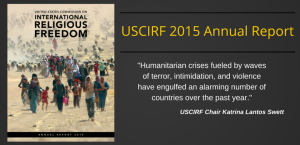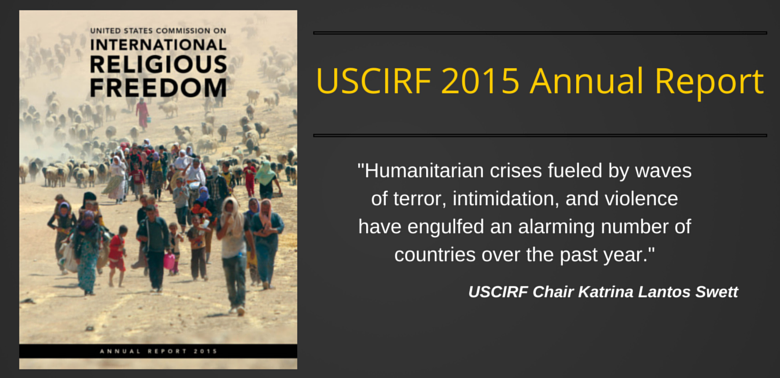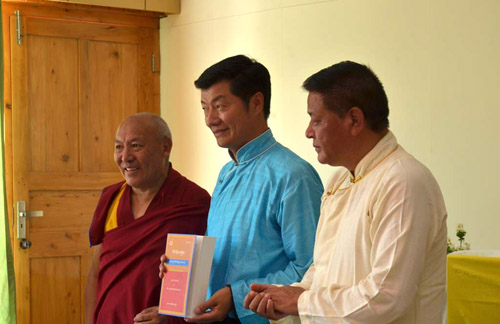China imposes “harsh policies of repression on Buddhists” across Tibet plateau: USCIRF Annual Report 2015
DHARAMSALA, May 5: Recommending the US State Department to re-designate China as a “country of particular concern” (CPC), where “particularly severe violations of religious freedom” are perpetrated or tolerated, the U.S. Commission on International Religious Freedom (USCIRF) in its 2015 Annual Report states that China imposes “harsh policies of repression on Buddhists” across the Tibetan plateau.
“Since 2008, the Chinese government has imposed harsh policies of repression on Buddhists across the Tibetan plateau, including harassment, imprisonment, and torture,” the report released on Apr 30 says on Tibet in its assessment of religious freedom violations in China.
“Moreover, the Chinese government continued its ongoing vilification of the Dalai Lama, including accusing him of seeking Tibetan independence, which he has repeatedly denied. While there were indications the Chinese government may allow him to visit Tibet, its insistence on selecting the next Dalai Lama continued to strain the relationship,” the report further said.
The report documents the case of Goshul Lobsang who died in Mar 2014, shortly following his release from prison due to extreme torture suffered during his time in prison and Khenpo Kartse, a Tibetan Buddhist leader who was sentenced to two and half years in prison in 2014 for allegedly protecting a fugitive monk.
While stating that self-immolations have continued in 2014, the report adds that Chinese government’s campaign of repression has also involved the destruction of religious structures and restrictions that have forced younger monks out of monasteries.
The 232-page annual report documents religious freedom violation in 33 countries and makes country-specific recommendations to the State Department under the International Religious Freedom Act (IRFA) of 1998.
USCIRF Chair Dr Katrina Lantos Swett in a statement said:
“With serious religious freedom violations occurring all around the world, these horrors speak volumes about how and why religious freedom and the protection of the rights of vulnerable religious communities matter. All nations should care about abuses beyond their borders not only for humanitarian reasons but because what goes on in other nations rarely remains there. In the long run, there is only one permanent guarantor of the safety, security and survival of the persecuted and vulnerable. It is the full recognition of religious freedom.”





